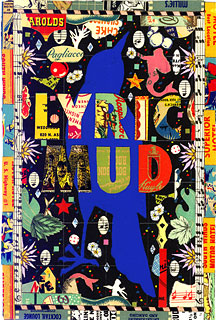 The literature on entrepreneurship often references the one “big idea;” the singular innovative vision for something new, often the invention of one singular talent. But, as we know, it takes a team of many to actualize that one big idea. I’ve been preparing to teach a unit next week on collaboration and the ways in which group work supports the process of entrepreneurship, especially the kind of creative thinking that often underlies arts entrepreneurship. In my posting a couple of weeks ago, I mentioned Warren Bennis and Patricia Ward Biederman’s book ORGANIZING GENIUS: THE SECRETS OF CREATIVE COLLABORATION (Basic Books, 1998). To prepare for my class next week, I’m using a selection from that text, as well as disciplinarily specific one, COLLABORATION IN THEATRE: A PRACTICAL GUIDE FOR DEISGNERS AND DIRECTORS by Rob Roznowski and Kirk Domer (Palgrave Macmillan, 2009). [In the interest of full disclosure, I note that Domer worked with me when he was a grad student at UW-Madison and I was on the faculty there.] In reading and synthesizing these, I developed a list of actions we all can undertake to be more effective collaborators and entrepreneurial team members:
The literature on entrepreneurship often references the one “big idea;” the singular innovative vision for something new, often the invention of one singular talent. But, as we know, it takes a team of many to actualize that one big idea. I’ve been preparing to teach a unit next week on collaboration and the ways in which group work supports the process of entrepreneurship, especially the kind of creative thinking that often underlies arts entrepreneurship. In my posting a couple of weeks ago, I mentioned Warren Bennis and Patricia Ward Biederman’s book ORGANIZING GENIUS: THE SECRETS OF CREATIVE COLLABORATION (Basic Books, 1998). To prepare for my class next week, I’m using a selection from that text, as well as disciplinarily specific one, COLLABORATION IN THEATRE: A PRACTICAL GUIDE FOR DEISGNERS AND DIRECTORS by Rob Roznowski and Kirk Domer (Palgrave Macmillan, 2009). [In the interest of full disclosure, I note that Domer worked with me when he was a grad student at UW-Madison and I was on the faculty there.] In reading and synthesizing these, I developed a list of actions we all can undertake to be more effective collaborators and entrepreneurial team members:
- Communicate
- Know your team members
- Ask questions
- Do your research
- Look for the “next thing,” not the last thing
- Look for relationships
- Be “deep generalists” rather than “narrow specialists” (Bennis)
- Work together toward a collective purpose
- Articulate the group’s mission
- Be optimistic
- Embrace the idea that groups are temporary and project-focused
- Find commonalities
- Listen, then adapt
- Listen, then participate
- Reach consensus
- Respect your team members










I am a deep advocate of collaboration, and encourage that the arts come together to creatively combine with one another rather than stay seperated. Musically, however, I have become less of a true believer in real collaboration with other musicians, and have gone more the route of simply hiring musicians. As far as collaborative projects, it would be the common belief that the majority of musicians would want to be a part of creating new and innovative work(s), but in my case I have found that musicians think too much about the image, too much about their finances and anymore are too afraid to even take risks. With this kind of business, it is literally every man for himself. Now more than ever so many other aspects have taken up the schedules and thoughts of music artists such as promotional work, social networking, creating not art, but products, and the sacrifice is that there is too little thought about the actual depth and meaning behind the music itself. I am sure that each type of musical field is different, but in mine, which happens to be songwriting, no one wants to work for you most of the time because the work is actually good; they want to work with you because they know the work is good, and in term they know that there is some sort of financial gain for them. Unless you are fortunate to find people who truly understand your work, you will find that you will be left in a political, sexist, narcissistic business. I know that everyone needs to work, that we all need to eat, and that we all need to support ourselves, but to some degree, are we all missing the picture? Why were we all put on this earth? Just to make and gain? I just wish that at least in this business that it was a lot less about what you did and much more about what you give.
Thanks Linda; I look forward to your thinking on these issues.
I would add; understand the value that different collaborators bring to the table; give continuous feedback to what is or is not working; be prepared to walk away when the collaboration is not working.
Molly,
Take a look at Maslow’s hierarchy of needs and it might make more sense to you why musicians- and I would go farther and say most artists- are this way.
Maslow believed we have a hierarchy of needs, beginning with (a) basic needs for food, shelter, water, then (b) needs for safety and security, (c) needs for love and belonging, (d) the need for self esteem, and (e) the need for self-actualisation. We cannot meet the higher-order needs until the lower ones are met. A hungry or fearful person will not recognize yet their need for self actualization. Most artists live at the poverty line- based on the sales of their artistry alone…
Your comment has a lot to do with precisely why I created EntrepreneurTheArts…. what can you do to help change other artists perceptions and interest in creating new opportunities and careers in the arts?